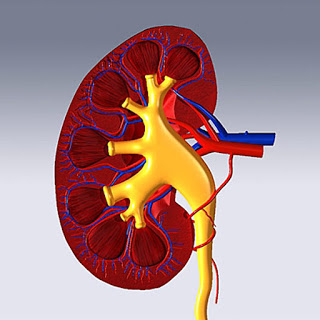NEW ON DRSUE.CA! Prefer to listen? Check out my audio recording of this post here:
After much anticipation, the SELECT trial results were published yesterday. This is the first trial ever of an obesity medication (semaglutide 2.4mg, trade name Wegovy) to demostrate a reduction in cardiovascular events in people with overweight or obesity (without diabetes) with a prior history of cardiovascular events.
In follow up to my blog on the high level results back in August, let’s now dig further into the details!
The SELECT trial (disclosure: I was an investigator in this trial), published in the New England Journal of Medicine, was a large study of 17,604 participants with overweight or obesity, no preexisting diabetes, and all with a history of preexisting cardiovascular (CV) disease (prior heart attack, stroke, or peripheral vascular disease). Participants were randomized to receive either semaglutide 2.4mg weekly (trade name Wegovy) or placebo, with the primary purpose of the study to see if semaglutide could reduce the risk of cardiovascular events (non fatal heart attack, non fatal stroke, and cardiovascular death).
At baseline, mean age was 62, mean body mass index (BMI) was 33, 72% of participants were male, and 84% identified as being white. Prediabetes was present in 66% of participants (using the American criteria of A1C 5.7-6.4%). Overall, 96.9% of participants completed the trial.
At a mean of 40 months of follow-up, the risk of a cardiovascular event was reduced by 20% with semaglutide vs placebo (an event occured in 6.5% of patients in the semaglutide group vs 8% in the placebo group; HR 0.8, 95% CI 0.72-0.90). Death from any cause was reduced by 19% (HR 0.81, CI 0.71-0.93), and heart failure was reduced by 18% (HR 0.82, CI 0.71-0.96). Nonfatal stroke (HR 0.93, HR 0.74-1.15) and death from cardiovascular events (HR 0.85, CI 0.71-1.01) were both in favor of benefit but did not meet signficance. There was no significant difference in benefit in any of the subgroups evaluated, including younger vs older, lower vs higher BMI, history of heart failure or not, type of background cardiovascular disease, or kidney function.
In the semaglutide group, 26.7% permanently stopped treatment during the trial, vs 23.6% of participants in the placebo group. Adverse events leading to permanently stopping medication occurred in 16.6% of participants in the semaglutide group (the majority of which were due to gastrointestinal side effects, which can include nausea, vomiting, diarrhea, constipation) and 8.2% in the placebo group. However, there were numerically more serious adverse events in the placebo group (36.4% of participants) than in the semaglutide group (33.4%). There was a small increased risk for gallbladder related events (2.8% with semaglutide vs 2.3% with placebo). There were numerically more cases of pancreatitis in the placebo group (24) than the semaglutide group (17).
Mean weight loss achieved was 9.4% with semaglutide over the first 2 years vs 0.9% with placebo, and weight loss was maintained through the duration of the trial. We don’t know how much of the cardiovascular benefit was related to weight loss, improvement in blood pressure, inflammation, cholesterol, blood sugars, or other factors, though this will surely be looked at in subsequent analyses.
Cardiovascular death was not statistically significantly reduced, but all cause mortality was reduced. This suggests that other causes of death may have been prevented by semaglutide, though complete information on cause of death (cardiovascular vs otherwise) could have been limited during the COVID lockdowns.
Several GLP1 receptor agonists (including semaglutide) are already known to reduce the risk of cardiovascular events in people with type 2 diabetes, and are well ingrained in diabetes treatment guidelines globally for cardiovascular risk reduction. The SELECT trial now shows benefit of semaglutide 2.4mg to reduce cardiovascular events in people with overweight or obesity, without type 2 diabetes. This underscores the importance of managing weight alongside other cardiovascular risk factors in people with overweight or obesity and cardiovascular disease. For people with cardiovascular disease and overweight/obesity, in my view, semaglutide 2.4mg is now on the ‘vascular risk reduction checklist’ alongside other important medications to consider, like those that reduce cholesterol and blood pressure.
Improved access to treatment is the next necessary step – coverage of this important treatment by insurance and public payors, and supply of this important treatment keeping up with the enormous global demand.
On behalf of the obesity patient community and healthcare community around the world, I extend my deep and heartfelt gratitude to every person who participated in the SELECT study, and to every member of each research team around the world who dedicated themselves to this groundbreaking study.
Disclaimer: I am an investigator in clinical trials of semaglutide, including the SELECT study. I receive honoraria as a continuing medical education speaker and consultant from the makers of semaglutide (Novo Nordisk).
Share this blog post using your favorite social media link below!
Check me out on twitter! @drsuepedersen
www.drsue.ca © 2023












